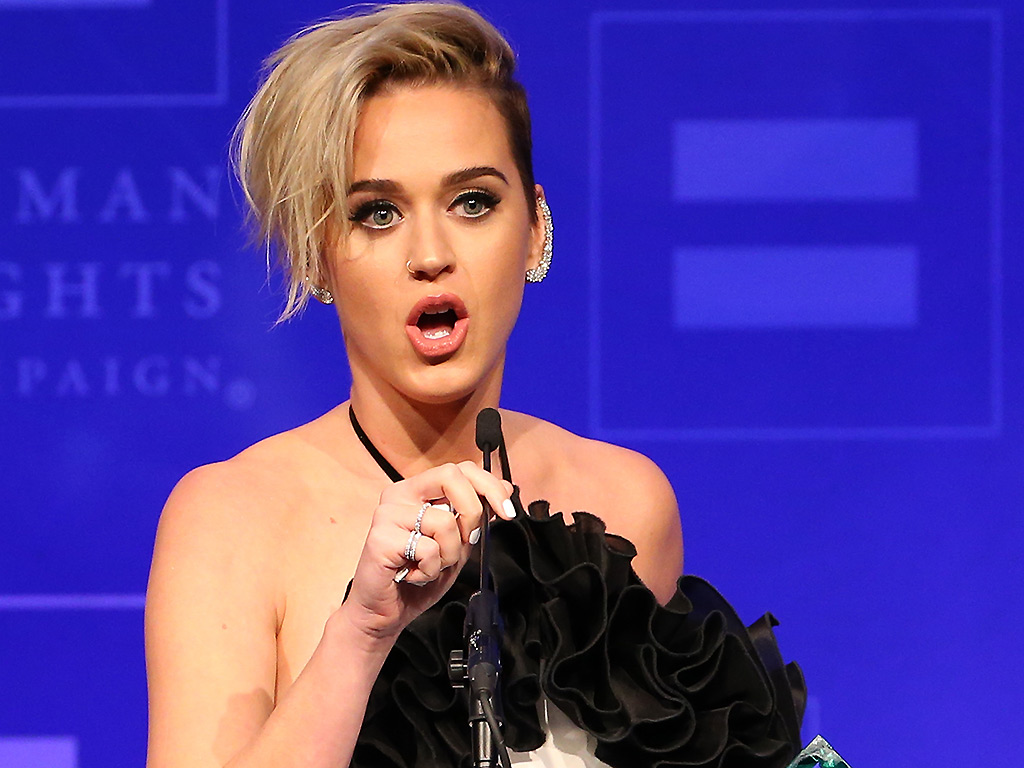Katy Perry took the stand in Los Angeles civil court on Thursday morning, where she gave an official testimony regarding a copyright infringement lawsuit filed against her.

The 34-year-old singer defended herself against claims that, without permission, she allegedly used instrumental elements of a relatively underground Christian rap song entitled Joyful Noise, for her own 2013 hit, Dark Horse.
Perry claimed that before the lawsuit she had heard of neither Joyful Noise or the artist behind it, as reported by ABC7.
The song was originally recorded and released in 2008 by Marcus Gray (known professionally as Flame).
WATCH: Official music video for Flame’s ‘Joyful Noise’
Gray and his team of writers filed the suit in federal court back in July 2014. It was pitted against Perry, co-songwriters Cirkut, Dr. Luke, Max Martin, Sarah Hudson and American rapper Juicy J, who is also featured on Dark Horse.
READ MORE: 50 Cent, Janet Jackson and others to perform in Saudi Arabia amid criticism of human rights record
During his opening statement, Michael Kahn, Gray’s lawyer made a point about how readily available Our World Redeemed — the album which contains Joyful Noise — is, highlighting retail outlets which carry it and its digital presence, distribution and numbers, namely through YouTube and MySpace.

Get breaking National news
He added that Perry’s team settling for “innocent infringement” — which is copyright theft without awareness — would suffice as a settlement for his client, as reported by Billboard.
Perry’s own attorney, Christine Lepera, fought this by stating that the plaintiffs could not provide any “evidence of widespread distribution” for Joyful Noise.
She continued that it was unlikely that her clients would have heard the song due to its obscurity and comparative lack of success to Perry’s career.
Upon returning to the stand, Perry reiterated her claims that she was unfamiliar with the tune, suggesting that her early Christian background in the music industry would have made it likely for the song to cross her path — if it was more successful.
The Roar singer claimed that by the time she recorded Dark Horse, she no longer listened to religious music actively.
READ MORE: OVO Fest ticket prices aren’t cheap, and Drake fans aren’t amused
Gray was the final witness to take the stand. He reportedly fought Perry’s argument in claiming Joyful Noise’s demographic went beyond Christian listeners.
He suggested Joyful Noise’s main instrumental section, which was allegedly responsible for this lawsuit, was utilized to appeal to a larger hip-hop audience.
WATCH: Taylor Swift And Katy Perry Make Up

“I feel my music is unlimited,” he claimed. It’s for everybody.” Furthermore, Gray supposedly listed a variety of settings and venues which he performs at, including churches, stadiums, sports arenas, radio stations, and other “secular venues.”
—
The trial is set to continue on Friday, July 19, where Gray will continue his testimony, according to Billboard.
Also set to take the stand is his manager and wife, Crystal Gray. Perry’s co-songwriters are expected to make testimonies later in the trial.
READ MORE: Post Malone announces North American tour, 2 Canadian dates
As of this writing, none of the allegations have been proven in court.
The music video for Dark Horse currently holds more than 2.6 billion views on YouTube alone, as opposed to Joyful Noise’s 2.4 million.








Comments
Want to discuss? Please read our Commenting Policy first.